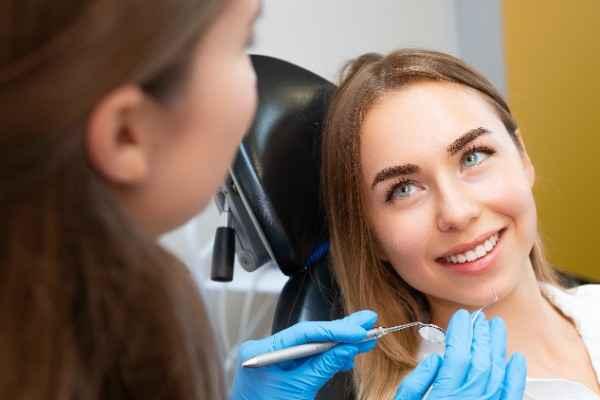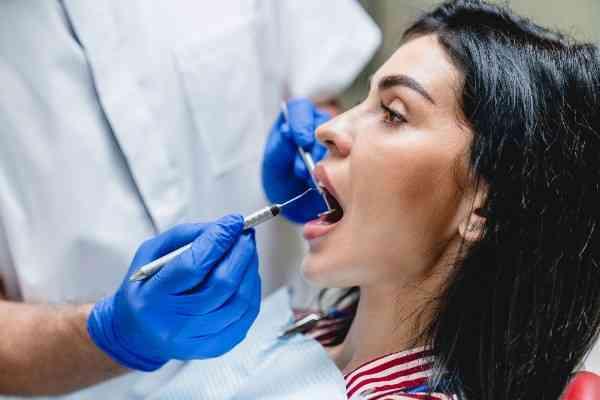Key Reasons Women Are More Prone to Oral Health Issues

Maintaining oral health is essential for everyone, yet women often face a unique set of challenges that can put their smiles at greater risk. Hormonal shifts and certain medical conditions that are more prevalent in women can cause notable changes in oral health throughout different life stages. Recognising these variations is essential for effective prevention, timely treatment, and personalised dental care.
This blog explores the core reasons why women are more prone to oral health issues and why a proactive, gender-specific approach to dental care matters.
Hormonal Fluctuations and Their Effect on Oral Health
Hormonal changes play a central role in a woman’s life from puberty to menopause and they directly influence oral health. The fluctuation of oestrogen and progesterone impacts the gums and oral tissues, making them more sensitive and susceptible to inflammation.
Key Life Stages Affected:
- Puberty: Hormonal changes during puberty boost blood circulation to the gums, often leading to redness, swelling, and bleeding, particularly noticeable when brushing.
- Menstruation: Some women experience temporary gum inflammation, ulcers, or swollen salivary glands just before their period.
- Pregnancy: Hormonal surges can lead to pregnancy gingivitis, characterised by tender, swollen gums that bleed easily.
- Menopause: Lower oestrogen levels may lead to symptoms such as dry mouth, a burning feeling in the mouth, and a heightened risk of developing gum disease.
A thorough oral health routine and regular visits to a Hygienist in Glasgow can help manage these hormonally influenced changes effectively.

Contraceptives and Hormonal Therapies
Hormonal Medications treatments like birth control pills and hormone replacement therapy (HRT) can heighten gum sensitivity to plaque, potentially impacting oral health. This heightened sensitivity may lead to inflammation and raise the risk of gingivitis.
Key points to remember:
- Hormonal changes can make gums more prone to swelling and bleeding.
- Long-term hormone use requires careful dental monitoring.
- Always inform your Dentist in Glasgow if you are on such medications.
- A personalised care plan can help manage symptoms effectively.
Open communication with your dentist ensures early detection and appropriate treatment for hormone-related oral issues.
Pregnancy and Gum Health: A Delicate Balance
Pregnancy introduces a range of oral health challenges due to significant hormonal and physical changes. A common condition seen during this time is pregnancy gingivitis, which can progress to periodontitis if left untreated.
Pregnancy-related concerns include:
- Increased plaque accumulation
- There is a possibility of developing non-cancerous growths on the gums, known as pregnancy tumours, during pregnancy.
- Morning sickness leading to enamel erosion
- Links between gum disease and preterm birth or low birth weight
Routine dental check-ups and support from a Hygienist in Glasgow during pregnancy are crucial in preventing complications and maintaining overall health.
Video Link: Maintain a Healthy Smile with a Dental Hygienist in Glasgow
Menopause and Oral Health Decline
As women approach menopause, their oral health often declines due to the reduction in oestrogen, which affects bone density and saliva production.
Common menopause-related symptoms:
|
Symptom |
Effect on Oral Health |
|
Dry mouth (Xerostomia) |
Reduces natural protection, increasing decay risk |
|
Burning mouth syndrome |
Persistent pain or burning sensation |
|
Bone loss |
May lead to tooth mobility or implant failure |
Maintaining a diet rich in calcium and vitamin D, alongside regular dental evaluations, is essential to combat the long-term effects of menopause on oral health.
Nutritional Deficiencies and Eating Disorders
Women are more frequently affected by eating disorders such as anorexia nervosa and bulimia, both of which can significantly harm oral health.
Oral implications of eating disorders include:
- Erosion of enamel due to stomach acid from frequent vomiting
- Increased tooth sensitivity
- Dry mouth caused by poor nutrition
- Higher risk of cavities and gum disease
Early intervention and support from dental professionals, including a Dentist in Glasgow, can help mitigate the oral effects and guide patients toward recovery.
Autoimmune Disorders More Prevalent in Women
Autoimmune diseases such as Sjögren’s syndrome, lupus, and rheumatoid arthritis disproportionately affect women and can lead to several oral complications.
Impact of autoimmune disorders on oral health:
- Chronic dry mouth
- Inflammation of oral tissues
- Difficulty swallowing
- Greater susceptibility to oral infections
Women managing autoimmune conditions should maintain close communication with both their GP and dental team to coordinate care appropriately.
Oral Hygiene Habits and Misconceptions
Although studies show women are generally more diligent with their oral hygiene, misconceptions and lack of awareness about the specific risks they face can lead to missed signs and delayed treatment.
Tips to Enhance Oral Health:
- Use a soft-bristled brush and replace it every 3 months
- Floss daily to remove plaque between teeth
- Schedule regular visits with a Hygienist in Glasgow for cleanings and tailored advice
Tailored care plans, particularly during hormonal transitions, can go a long way in preserving long-term oral health.

Impact of Stress on Women's Oral Health
While not always discussed, stress plays a significant role in oral health, especially for women, who may experience higher levels due to hormonal fluctuations, caregiving roles, and work-life balance.
Key effects of stress on oral health include:
- Increased risk of bruxism (teeth grinding), especially at night
- Jaw pain or temporomandibular joint (TMJ) issues
- Canker sores or mouth ulcers
- Disruption of oral care habits during times of heightened stress
- Decreased saliva flow, resulting in dry mouth and an increased likelihood of tooth decay
Managing stress with mindfulness, balanced nutrition, and regular check-ups with a Dentist in Glasgow helps reduce these oral health impacts.
Why Gender-Specific Dental Care Matters
Women’s oral health isn’t just about brushing and flossing, it’s intertwined with hormonal changes, systemic health, and lifestyle habits. A gender-aware approach allows dental professionals to offer more targeted support, such as:
- Monitoring gum health during pregnancy or menopause
- Managing symptoms related to medications or autoimmune diseases
- Recommending suitable fluoride levels and oral hygiene tools
- Offering nutrition advice to support enamel and bone health
A Dentist in Glasgow trained in recognising these nuances can make a significant difference in early diagnosis and prevention strategies.
Conclusion
Women's oral health is deeply connected to their hormonal cycles, lifestyle, and broader health conditions. Each phase from puberty through to menopause presents unique oral health challenges that demand personalised care and attention. By understanding these unique risk factors and seeking consistent professional care, women can maintain strong, healthy smiles throughout their lives.
At Glasgow, we understand the specific oral health needs women face and are committed to providing personalised, expert dental care every step of the way.








